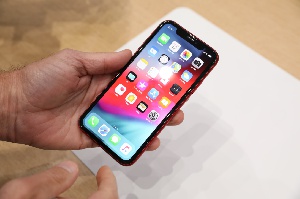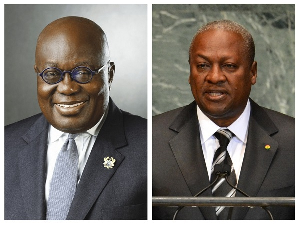Why Outward Appearance Matters
On July 9, 2008, Senator Barack Obama traveled to Powder Springs, Georgia, to address a campaign rally, where he had a special message for America's young people. In his address, with particular emphasis on African-American kids, then-presidential hopeful Barack Obama made the following statement about U.S. rapper Lil' Wayne (real name: Dwayne Michael Carter, Jr.): "You are probably not that good a rapper. Maybe you are the next Lil' Wayne, but probably not, in which case you need to stay in school." Obama, the product of an interracial relationship on American soil, understood the challenges of what it meant to grow up as a black kid in America. Why, then, do some of our young people mutilate their bodies with hideous tattoos and dress like gangsters in a society that has already marked them as inferior?
With the recent increase in the number of young rappers seeking fame and fortune in one of America's toughest industries, Obama was right to remind these young kids that they had a brighter future staying in school than outside of it. Today, a perfunctory observation of teenagers in our various societies reveals a dangerous trend: the propensity to dress, act and speak like thugs, a trend that I consider antithetical to the proper socio-cultural development of our young people. The reader may not agree with my views on proper dressing, but the reader cannot dismiss the fact that every society has rules – written and unwritten – that it expects its members to observe. For example, indecent exposure is considered a taboo in almost all societies. And in some law-abiding societies, the intentional exposure of the genitalia will lead to an arrest.
If we accept the fact that each person cannot devise his own rules – such a scenario will have dire consequences for the smooth running of society – then we ought to agree that society has the right to impose a dress code on its members, even if such a code were not legally enforceable. The decadent dressing styles of America's rap artistes have now been exported to all corners of the globe, and Ghanaian society is no exception. In contemporary Ghana, one readily observes young men with earrings (in one or both ears), revolting tattoos, saggy pants that lie about six inches below the waist, and braided hair generally considered the preserve of females in African societies. While females similarly break the Ghanaian society's dress code, it appears that the deviation from what is acceptable is more discernible among members of the stronger sex. Sadly, our young people have been afflicted by the egregious clothing styles of thugs and gangsters who preside over fiefdoms in faraway America.
As Obama rightly remarked, very few of America's children will, unlike Lil' Wayne, eventually savor success, if they pursued a career in a vicious music industry that brings success to, perhaps, only one out of every 100 apprentices. Additionally, none of these kids would get jobs in a regular workplace if they defaced themselves with as many tattoos as we find on Lil' Wayne's arms, neck and torso. In other words, Lil' Wayne can afford to choose his habiliments and hairstyle, but other young people cannot imitate Lil' Wayne and hope to become successful in the world of regular people. Without a doubt, some crooners in Ghana have contributed greatly to the decline of moral standards in our society. From their bleached faces to their filthy lyrical renditions, these crooners have become magnets for unprincipled young people and juvenile delinquents.
The reader may not agree with me, but it is important to note that society's unwritten dress code cannot be violated without suffering negative consequences. Take, for instance, the high level of unemployment that has struck all nations around the globe. Human resource personnel in organizations are people with both values and biases, which means that if two people with the same qualifications and experience walked in the door and applied for a single job, it is very likely that the applicant with decent clothes and kempt hair would have a better chance of getting hired than the one with saggy pants, tattoos and unkempt hair. That is the way things work in the real world, folks, which is why we need to save our young people from impending ruin by educating them on the need to maintain a proper physical appearance.
Nothing is more attractive to a prospective employer than a young person with a neat appearance. Not every individual can afford expensive clothing for a job interview, but every person can look decent and attractive even in simple attire. Even the most expensive attire will be off-putting if worn by a man with unkempt hair and earrings. In a world in which we are plagued by stereotypes, no one in his right senses should toss away his chances of success by imitating thugs who do not live in our world – a world that requires an ordinary person to stay in his employer's office from 8 a.m. to 5 p.m., in order to earn a paycheck. Last week, while in court on official assignment, I saw a guy walk up to the presiding judge when his case was called. Realizing that the bailiff might ask him to remove his earring, he quickly did so himself as he approached the bench. A thought quickly went through my mind: If this guy understood that such an item would be frowned upon in a formal setting, why did he embrace its use in the first place?
Disfiguring oneself may be one's prerogative, but actions have consequences, some pleasant and some not so pleasant. It behooves parents and guardians to, for the sake of the welfare of their children and wards, instill discipline in these young people before their wills become inflexible. I will be very worried, dear reader, if I visited Accra the next time and saw hundreds of our young men looking like thugs, all in the name of fashion and so-called liberation. That, in my humble opinion, will signal a specter of doom for our once-cherished societal values of decency, self-worth and equanimity.
© The writer, Daniel K. Pryce, is pursuing a doctoral degree in Criminology, Law & Society at George Mason University. He holds a master’s degree in public administration from the same university. He is a member of the national honor society for public affairs and administration in the U.S.A. He can be reached via e-mail at dpryce@cox.net, or followed on Twitter: @DanielKPryce. Requests to use any portion of this piece must be sent directly to the author.










